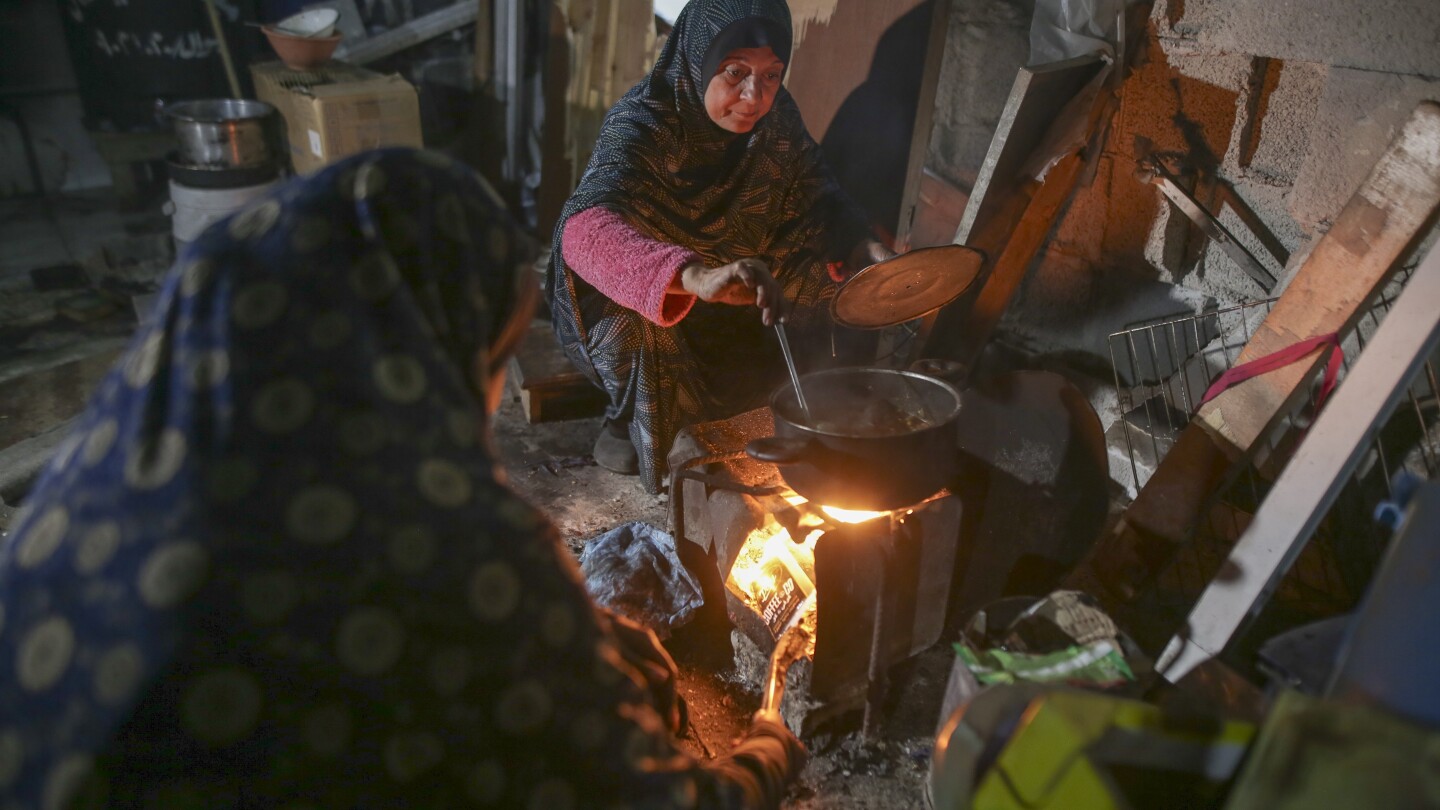Hope Amidst Turmoil: Ramadan in Gaza Under a Fragile Ceasefire
As the holy month of Ramadan unfolds in Gaza, the community finds itself navigating a landscape marked by both hope and despair. The fragile ceasefire, which offers a momentary respite from ongoing hostilities, creates a complex environment for the residents who have faced unimaginable challenges. This Ramadan, Gazans grapple with the weight of loss and worry while clinging to the hope for better days ahead.
The Spiritual Significance of Ramadan
Ramadan is traditionally a time for reflection, community, and spiritual growth among Muslims worldwide. It is a month dedicated to fasting, prayer, and charitable acts, with the aim of fostering a sense of unity and compassion. In Gaza, where the socio-political climate has long been tumultuous, the significance of Ramadan extends beyond the spiritual realm—it becomes a beacon of resilience amidst the chaos.
During this month, families come together to break their fast with iftar, sharing meals and prayers. However, in Gaza, the act of gathering is often shadowed by the fear of loss and uncertainty. The ceasefire, while providing a temporary halt to violence, cannot erase the memories of those lost or the constant worry for loved ones who are still at risk.
Living Under a Fragile Ceasefire
The recent ceasefire has been a double-edged sword for the people of Gaza. On one hand, it brings a sense of relief; on the other, it instills a pervasive uncertainty. Residents are cautiously optimistic, yet the fear of a resume of hostilities looms large. The ceasefire provides an opportunity for families to reconnect and heal, yet it serves as a stark reminder of the volatility of their reality.
Many families are using this time to reflect on the past year, which has been filled with loss and hardship. In homes across Gaza, conversations during iftar often turn to those who are no longer present, and the hope for a peaceful future is palpable. The fragile ceasefire allows for a moment of normalcy, but the underlying tension remains, affecting how families approach their spiritual practices during Ramadan.
Acts of Resilience and Community Spirit
Despite the hardships, the spirit of Ramadan in Gaza is alive with acts of resilience. Community organizations and local charities have ramped up efforts to provide support to those in need. Food distribution initiatives have become vital, ensuring that families can break their fasts together despite economic challenges exacerbated by the ongoing conflict.
- Community Kitchens: Many organizations have set up kitchens to provide free iftar meals to families who may struggle to afford them.
- Charitable Donations: The spirit of giving is amplified during Ramadan. Individuals are encouraged to donate to local charities, supporting those affected by the ongoing crisis.
- Educational Programs: Some NGOs are offering free educational programs for children during the month, fostering a sense of normalcy and hope for the future.
These initiatives exemplify the community’s determination to uplift one another, even in the face of adversity. The shared experience of Ramadan becomes a collective act of resistance, highlighting the strength and resilience of the Gazan people.
The Role of Faith in Times of Crisis
Faith plays a crucial role in the lives of Gazans, particularly during Ramadan. For many, turning to prayer offers solace and strength amidst the turmoil. Mosques, once filled with worshippers, have adapted to the current climate, ensuring that safety measures are in place while also fostering a sense of community and belonging.
The rituals of Ramadan—prayer, fasting, and reflection—serve not only as spiritual practices but also as coping mechanisms. Gazans turn to their faith to find peace and resilience, drawing strength from the teachings of Islam that emphasize hope, compassion, and perseverance.
The Power of Hope
Hope is a recurring theme during Ramadan in Gaza. The community looks to the future with cautious optimism, believing that peace is possible. This hope manifests in various forms—from the aspiration for a stable ceasefire to the longing for a day when families can live without fear.
Storytelling has become a vital part of this hope. Residents share stories of resilience, of how they have coped with loss, and how they continue to support one another. These narratives foster a sense of unity and remind individuals that they are not alone in their struggles.
Looking Ahead: Building a Future of Peace
As Ramadan progresses, the focus for many in Gaza shifts towards the future. The community is not only hoping for an end to conflict but envisioning a reconstruction of their lives and society. Conversations during iftar often delve into aspirations for education, economic development, and improved living conditions.
The path to peace is fraught with challenges, yet the resilience of the Gazan people shines through. By supporting one another and fostering a sense of community, they lay the groundwork for a brighter future. The hope amidst turmoil is not just a fleeting sentiment; it is a powerful driving force that can lead to meaningful change.
Conclusion: A Ramadan of Reflection and Hope
This Ramadan, as Gazans observe their traditions under a fragile ceasefire, they embody the complexities of their reality. Amidst the turmoil, the spirit of hope prevails, offering a glimmer of light in the darkness. By coming together, engaging in acts of kindness, and nurturing their faith, the people of Gaza demonstrate an unwavering resilience.
As they navigate the emotional landscape of loss, worry, and hope, they remind us all of the power of community and faith. This Ramadan, let us stand in solidarity with the people of Gaza, acknowledging their struggles while celebrating their hope for a peaceful and prosperous future.
See more Update My News



